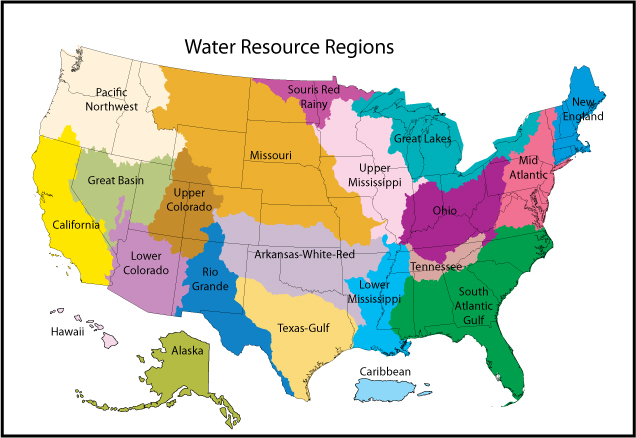Gov. Walz recently announced his intention to coordinate the re-opening of our economy with those of neighboring states. This comes at the same time that the Upper Mississippi was declared the most endangered river in America. So what links these Great Lakes States in the upper Mississippi and Ohio watersheds?
The history of glaciation unites this region. The Great Lakes basins were scooped out by glaciers, and their contents ground up and spread to the south to create the fertile, rolling plains of the Upper Mississippi and Ohio river watersheds. Terrain and soil drive every human activity: farming, resource extraction, water use, transportation and they all combine to grow industry, a city, and an economy.
The common and recent geologic history that created a similar resource base and development path also created common challenges: sediment erosion and nutrient loading to the waterways that result from agriculture; invasive species spread through transportation routes; and the groundwater and surface water needs of the cities that grew so well here. Now-depleted soils need more engineering and effort—through drainage, widespread chemical usage and modified crops—to achieve the same results. Hollowed-out cities do not have the tax base to support their aging infrastructure and cannot provide clean water to their remaining residents; groundwater is being depleted. All the while, the collateral damage to surface water increases.
This recent Covid-19 knockdown happened just as Great Lakes cities were struggling to their feet again, finding ways to restore vitality to their downtowns through redevelopment and green infrastructure. The cities continue to face new and pressing challenges that impair their ability to serve their current residents, let alone focus on the future. Ideally, they could be planning for and attracting the next wave of immigrants to the Great Lakes Basin; both Buffalo and Duluth were designated climate resilient cities of the future. Likewise, the Covid-19 challenge occurred on the tails of a couple of really bad years for farmers in the Mississippi and Ohio headwaters. Low commodity prices combined with all that rain and flooding have resulted in losses—of income, nutrients and sediment—all down the drain, or the Mississippi as it were.
It is our hope that solutions that are coordinated across state lines and along watershed lines will lead to a resilient economy for the entire region. To that end, we are supporting a bipartisan bill to establish a program to compensate willing landowners in the Minnesota Basin to hold back water on their land. Because by helping them, we help everyone else downstream.
— Carrie Jennings, research and policy director